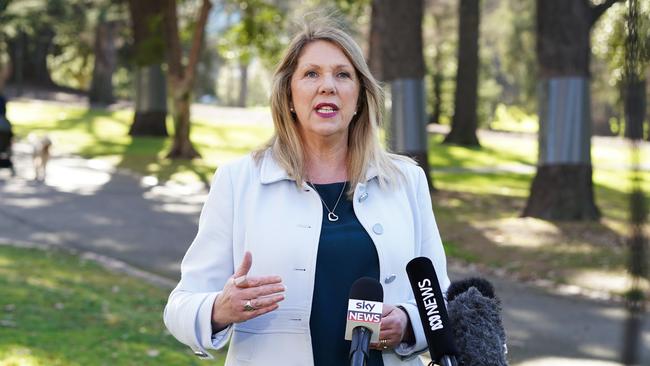MRI costings put price on political promises
Every new MRI machine promised before the election will cost taxpayers $4.2 million over three years, new analysis shows.

Every new MRI machine promised ahead of the election will cost taxpayers $4.2 million over three years, according to a new analysis that puts a price on the looming political stoush over diagnostic imaging.
The Coalition has faced an unrelenting campaign by the Australian Diagnostic Imaging Association for higher rebates for scans, and is overdue responding to a parliamentary committee report and questions from budget estimates committee hearings about MRI machines.
Labor has already promised 20 new MRI machines for hospitals and imaging centres in regional areas and the outer suburbs — “all covered by Medicare” — at a cost of $80m.
However, a Parliamentary Budget Office costing of a separate proposal suggests Labor might be a few million dollars short. It this week priced South Australian MP Rebekha Sharkie’s promise of two MRI machines at $8.4m over three years from July 1 next year.
That would suggest the full rollout of 20 new machines would cost $84m over three years, although Labor plans to announce 10 locations before the election and may stagger the others.
Labor health spokeswoman Catherine King has so far announced licences for Kalgoorlie and Midland in Western Australia, Mount Barker in South Australia, Moreton Bay in Queensland and Werribee in Victoria, with another five to come before polling day.
“If we win government, we will award a further 10 through a transparent application process during our first term,” a spokesman for Ms King said yesterday.
“Our costing of $80m is based on the government’s own national average cost for a single licence. But all Medicare services are demand-driven, meaning the final cost could be slightly higher or slightly lower based on the locations we choose.”
The Australian National Audit Office was critical of an MRI package introduced by a Labor government in 2011. Almost three times more machines were approved in the first three years than originally anticipated.



To join the conversation, please log in. Don't have an account? Register
Join the conversation, you are commenting as Logout